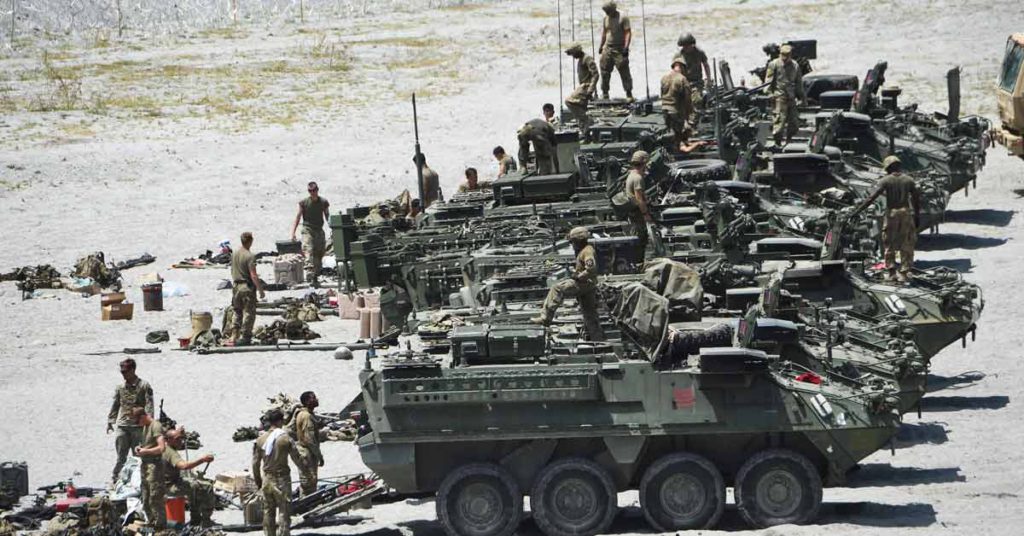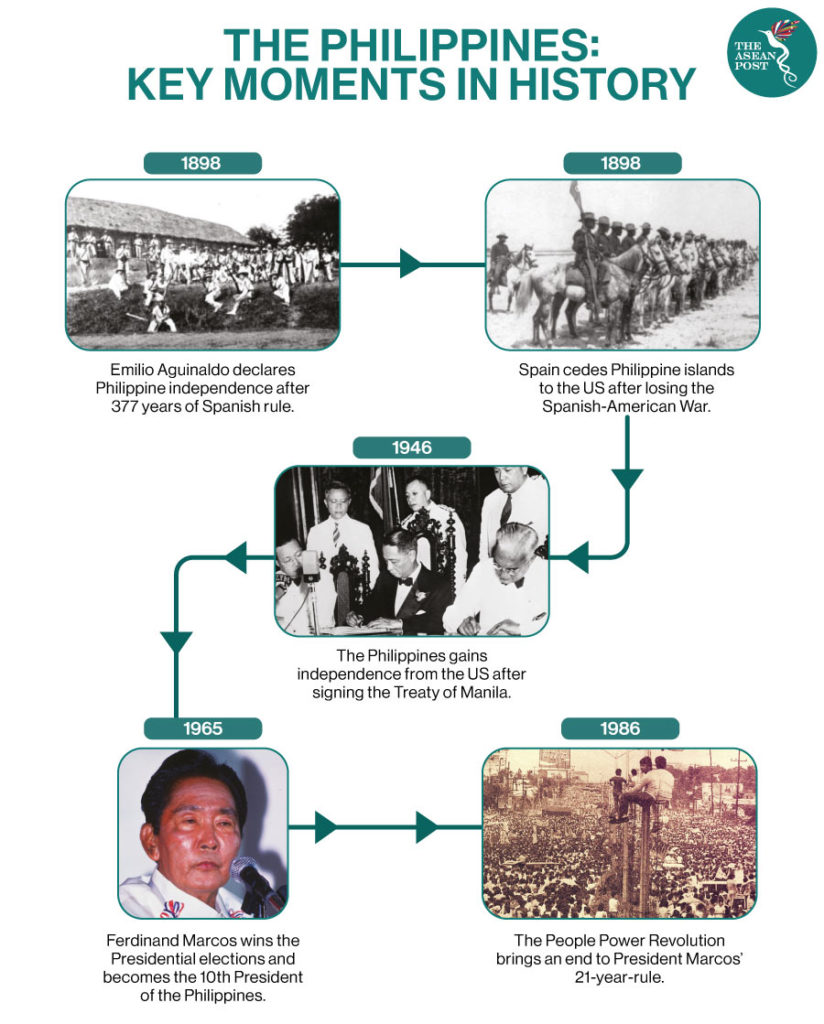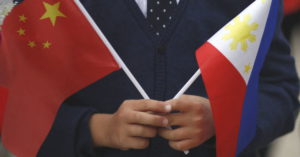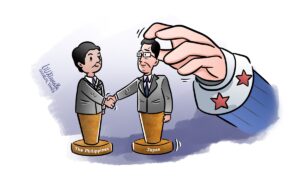
The security alliance and relationship of the Philippines and the United States (US) is among the oldest, and most complex in Asia. The close ties between the US and the Republic of the Philippines (RP) can be traced back to the colonial period when the Philippines was a protectorate of the US. The period from 1898 to 1946 denotes the era of direct American colonisation of the Philippines.
The Visiting Forces Agreement (VFA) alongside the Mutual Defense Treaty (MDT) and the Enhanced Defense Cooperation Agreement (EDCA) have been effective since 1999, eight years from the time the Philippines rejected the Military Bases Agreement (MBA) – that would have extended the US’ lease of Clark Air Base and Subic Bay Naval Base – and ordered the withdrawal of all US troops from the Philippines.
In February 1998, Philippine Foreign Affairs Secretary Domingo Siazon and US Ambassador Thomas C Hubbard signed the VFA which was ratified on 27 May, 1999, by the Philippine Senate after declaring the agreement as a treaty.
The VFA is chiefly an accord between the Philippines and the US that provides the “legal framework for the treatment of US personnel visiting the Philippines as approved by the Philippine government.”
Intrinsically, the VFA was not only the cornerstone of US-Philippine defense cooperation in the post-Cold War era, but in essence, an agreement in support of the MDT, and the political emblem of the so-called “closeness” of the US-PH strategic alliance and bilateral relations.
Though abrogated on 11 February, 2020, the termination of the VFA has been suspended twice. First in June 2020, and the second in November 2020. However, in more or less three months, the VFA faces termination again in August 2021. Hence, the fate of the VFA is indeed hanging in the balance and is subject to Duterte’s decision.
Duterte Still Undecided On VFA
Nevertheless, when asked if President Duterte had already decided on the fate of the VFA, Presidential Spokesperson Harry Roque stated that Duterte is still undecided whether he will pursue the abrogation of the VFA between the US and the Philippines or forge a new one.
In his press briefing on Monday (24 May, 2021), Roque said that the President told him that he was still unsure about what to do with the VFA. “Ang huling sinabi niya sa akin, wala pa talaga siyang desisyon sa VFA. Pinag-iisipan pa rin niya (The last thing he told me was he has no decision yet on the VFA. He’s still thinking about it). Tanging Presidente lang po talaga ang makakapag-desisyon kung magkakaroon ng bagong VFA o tuluyan nang ibabasura (Only the President can make the decision if there will be a new VFA or if it will be scrapped). Let us wait for his decision.”
Roque further explained that one of the crucial factors that President Duterte was thinking of was if the VFA would be helpful in case the issue in the West Philippine Sea (WPS) goes south. “Ang nasa isip niya eh makakatulong ba sa atin ang pagkakaroon ng Visiting Forces Agreement dito sa ating bayan (He’s thinking if the VFA will be beneficial to us),” Roque added.
Roque also reiterated that President Duterte has been studying the matter (VFA) for a long time. Roques said, “Alam na po ni Presidente kung ano ang mga bagay-bagay na dapat ikonsidera sa kanyang gagawin niyang desisyon (The President knows the different things he should consider when he makes his decision). Matagal naman pong pinag-aaralan ni Presidente itong issue ng VFA at ang relasyong Amerika at Pilipinas (The President has been studying this issue of the VFA and the Philippines’ relations with the US for a long time),” Roque added.
Considerations
In retrospect, the decision making-process of President Duterte – whether he will carry out the termination of the VFA or forge a new one – depends on certain considerations being taken into account. It is vital to note that even before the signing and ratification of the VFA, the agreement has been challenged and questioned many times over about its constitutionality and its respect for the sovereignty of the Philippines.
According to several critics, the agreement is unconstitutional since there are provisions in the agreement which is in disparity with the Philippine Constitution, which also reflects on the sovereignty of the country. For instance, Article II Section 2 of the Philippine Constitution that states, the Philippines renounces war and nuclear weapons as instruments of national policy.
But the VFA is not even clear and silent on what particular military activities that the US and the Philippine Armed Forces can undertake. Even launching a missile against another country is possible under the VFA.
Also, in terms of criminal jurisdiction, the Philippines can only request from the US visiting forces the custody of the accused member of the visiting forces who committed a criminal offense in the Philippines. This VFA provision is a violation of Philippine sovereignty since anyone who enters Philippine territories should be subject to its laws and rules.
On another note, as required by Philippine laws, only under a treaty, duly ratified by the Senate and Congress, through a national referendum and recognised as a treaty by the other contracting party, can the freedom of the visiting forces/foreign troops, facilities, or bases be allowed in the Philippines. However, the US did not recognise the VFA as a treaty but an executive agreement.
Hence, substantially and to a considerable degree, the VFA has been framed in a backdrop that is not mutual at all to both parties, but more advantageous and favourable to the US over the Philippines.
Also, the VFA in many ways provides as well for opportunities and openings for US interference in the domestic affairs of the Philippines, instead of paying more reverence to the sovereignty of the country.
Hindsight And Perspective
Thus, it can be argued that because of the lopsided provisions, terms, and conditions of the VFA, Filipinos should think seriously if indeed it needs to be terminated and replaced with a new agreement or not.
For one, there’s no reason to maintain a US military presence in the country. The situation today is completely different from that of the Cold War. At present, there are no significant imminent signs of danger at least militarily that will directly threaten the Philippines unless the US pursues its antagonistic stance with China while using the Philippines as a springboard; something that will be most unfortunate.

The current security environment thus far is entirely different than it was during the Cold War. Thus, it can be argued that the Philippines doesn’t need the VFA unless its uneven and lopsided provisions can be dealt with and revised; with compensation being paid by the US government.
To justify the need to continue the VFA because of the so-called “China threat,” is even more far-fetched and misplaced.
Though it is quite true that in some instances in the recent past and probably in the foreseeable future, Chinese fishermen and vessels spread across the South China Sea (SCS) will continue to harass Philippine fishermen and fishing vessels from neighbouring countries; these kinds of incidents are not new at all. It is not only China per se that has carried out such actions as other parties to the dispute over the SCS have also done so too.
Incidents have happened at various times among other parties and are quite common as the SCS has been a contested area for a long time. These minor skirmishes and conflicts are pragmatically expected and can’t be prevented from happening from time to time.
However, thus far, no serious military confrontations tantamount to war had happened. Hence, exaggerating and inflating the situation in the SCS out of proportion is a deceitful way of justifying the need for the VFA to continue given its lopsided and biased agreements to American strategic interests in the Indo-Pacific region vis-à-vis the national security and interests of the Philippines.
Likewise, in many ways, maintaining the VFA is somewhat an anti-thesis in the Philippines’ pursuit of an “independent foreign policy and non-aligned stance”. The VFA is also a symbol of US domination in the country, a reminder of the colonial era and the interventionalist agenda of the US. The continuous presence of military forces in the country is no doubt a remnant of colonialism that Filipinos should probably put an end to if it wants to be a truly independent state.
As stated by Senator Claro M Recto, the Philippines needs a foreign policy that is based on its national interests and security and not those of the US. Thus, it is therefore in the best interests of the Philippines to abrogate the lopsided and asymmetrical VFA, if it can’t be replaced with a more balanced and symmetrical agreement that is more advantageous and beneficial to the Philippines.
Source: The ASEAN Post
https://theaseanpost.com/article/philippines-vfa-hanging-thread



